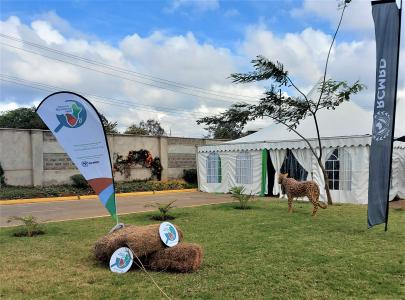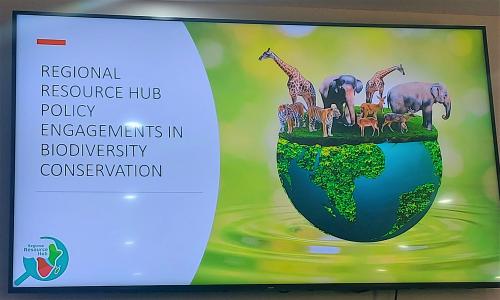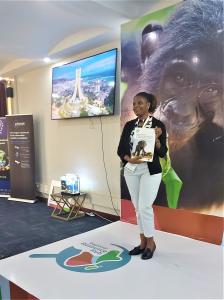Change is the end result of all true learning
When I accessed the Regional Centre for Mapping Resources for Development headquarter in Kasarani, Nairobi, to attend the second edition of the Regional Resource Hub (RRH) Data Workshop on Protected and Conserved Areas for Eastern and Southern Africa, I could see the change has happened.
The banners, the reception gazebo, the big statues representing typical wildlife, the large tents hosting the buffets, the large plenary sessions room ready to host more than 70 people from all countries of Eastern and Southern Africa, were all good signs of that.
The Regional Resource Hub was created as one of the regional observatories for biodiversity and protected areas under the Biodiversity and Protected Areas Management (BIOPAMA) programme. The only two years old Regional Resource Hub for Eastern and Southern Africa had definitely grown up to an independent, standing alone secretariat run by a competent, enthusiastic and close-nit team of Kenyans: Ngugi Kimani, Eric Wabwile, Isaac Fadamullah, Yvonne Khaemba and Job Wangi.
Another big sign of change was when I saw Zakhe Dlamini on the stage. He was a trainee during the first Data Workshop Edition in 2022, representing Eswatini National Trust Commission, but in this edition he even gave a talk on using Data Science to support decision-making. He wanted to share with his peers what could be achieved by using data evidence! Inspired by Zakhi, the training participant Ana Gledis da Conceição, Junior Officer of Research at National Administration of Conservation Areas in Mozambique, declared that in the next edition she would also like to be a speaker.
I trusted this would happen by the end of BIOPAMA program, acknowledging the RRH staff experience and expertise, but I was surprised by the speed at which the RRH took off, particularly since the pandemic has been called off.
The change has happened both in the form and in the substance. This was evident to me as well as to our colleague Falko Buschke- newcomer in BIOPAMA and focal point for Southern Africa- and to our long term project partners Chrstine Mentzel (IUCN ESARO) and Jasmin Upton (UNEP-WCMC), who attended the workshop.
The workshop was the first in the region targeting specifically Biodiversity Conservation and the role of data-evidence for achieving Global Biodiversity Targets for Protected and Conserved Areas, entirely run by an African organisation for a large audience of African stakeholders. It successfully achieved its major objectives:
• to demonstrate and discuss the importance of data and information in decisions related to effectiveness and governance in protected and conserved areas;
• to engage on how the countries will participate in the preparation of the State of Protected and Conserved Areas Report 2023 (SOPACA);
• to demonstrate the information management process of the RRH;
• to allow countries to engage actively with the Regional Reference Information System;
• to demonstrate and discuss the role the RRH can play in reporting processes, for e.g., to the Convention on Biological Diversity (CBD);
• to understand what the interest and needs of users and potential users in the countries are;
• to allow the RRH team to improve the services and products available;
• to launch the RRH community of practice;
• to learn about some existing opportunities under Conservation Programs run by various institutions like Esri, Planet
Claudia Capitani (Project Officer - BIOPAMA East Africa focal point)


